Disclosure: This article contains affiliate links, which means that if you click on one of the product links and make a purchase, we may receive a small commission.
Cultivating Emotional Intelligence in Elementary Education
In the ever-evolving landscape of elementary education, the importance of social and emotional learning (SEL) is gaining remarkable recognition. As school counselors, our mission extends beyond academics; it’s about nurturing well-rounded, emotionally intelligent individuals. In this post, we’ll explain why SEL is vital, particularly in elementary schools, and why integrating games into counseling sessions can be a powerful tool.
Social and emotional learning equips students with essential life skills—empathy, self-awareness, communication, and emotional regulation—that lay the foundation for their future success. The elementary years are a crucial developmental period, shaping a child’s social interactions and emotional responses. This applies directly to counselors working tirelessly to support young minds in their formative stages.
Today, we’re thrilled to introduce you to the top five social and emotional games every school counselor needs. These games not only make learning fun but also offer a hands-on approach to teaching these vital life skills. Get ready to explore innovative tools that will enhance your counseling toolkit and empower the students you serve.
Why Does SEL Matter?
- Holistic Development: SEL acknowledges that a child’s education is not limited to academics alone. It recognizes the importance of nurturing well-rounded individuals who are emotionally intelligent and socially adept.
- Building Strong Foundations: The elementary years are formative. Children are developing their personalities, social skills, and emotional responses. Introducing SEL at this stage helps lay a strong foundation for their future growth and well-being.
- Enhanced Learning: Emotional regulation and self-awareness are linked to better academic performance. When students can manage their emotions, they are better equipped to focus, solve problems, and collaborate effectively with peers.
- Bullying Prevention: SEL equips children with the tools to navigate social interactions positively. It promotes empathy, reduces bullying incidents, and fosters a more inclusive and respectful school environment.
- Life Skills: SEL imparts practical life skills that are valuable throughout one’s life journey. These skills contribute to better decision-making, healthier relationships, and improved mental health.
Understanding SEL’s importance is crucial for both educators and parents, as it shapes the way we nurture the next generation. Now that we’ve established the significance of SEL, let’s explore how integrating games into counseling sessions can be a powerful and engaging way to teach these vital life skills.
1. Emotional Rollercoaster
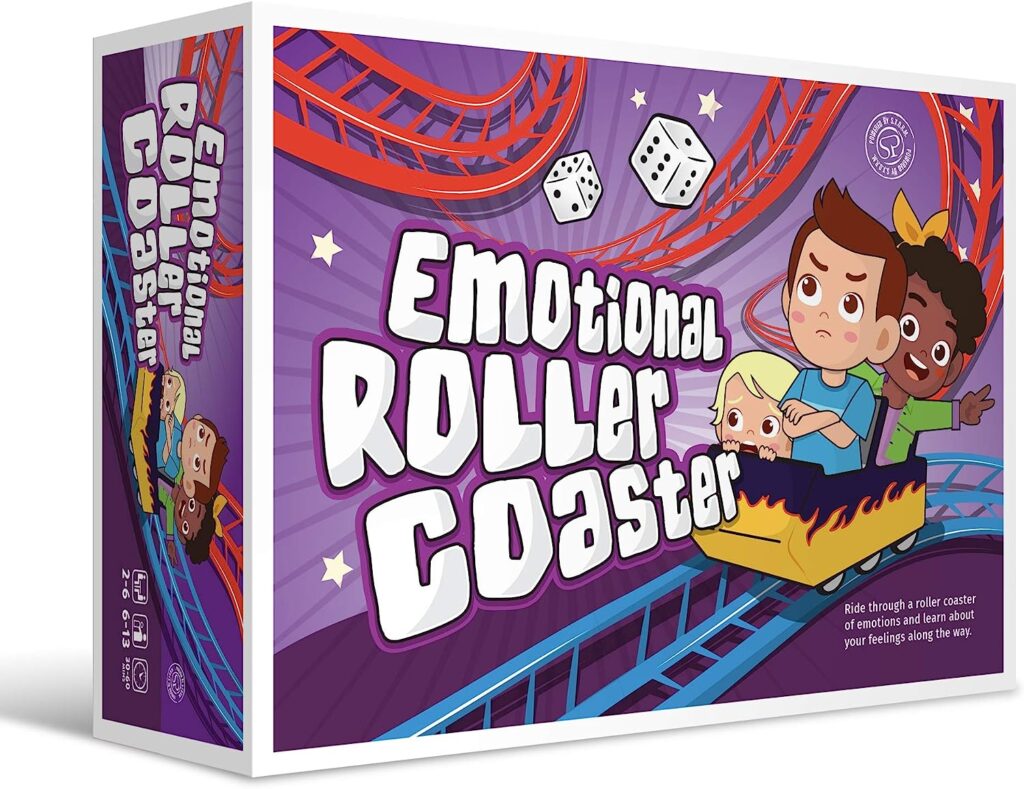
$35.95
Emotional Rollercoaster is a must-have anger management game for kids aged 4-12. It equips children with valuable anger coping strategies, mindfulness techniques, and enhanced self-expression skills. This game encourages problem-solving and self-regulation, making it an invaluable addition to counseling sessions, classrooms, and family activities.
Invest in Emotional Rollercoaster to empower kids with essential emotional intelligence tools in a fun and engaging way. This game helps them learn to handle anger positively, setting them on a path to better emotional well-being.
2. This Is Me
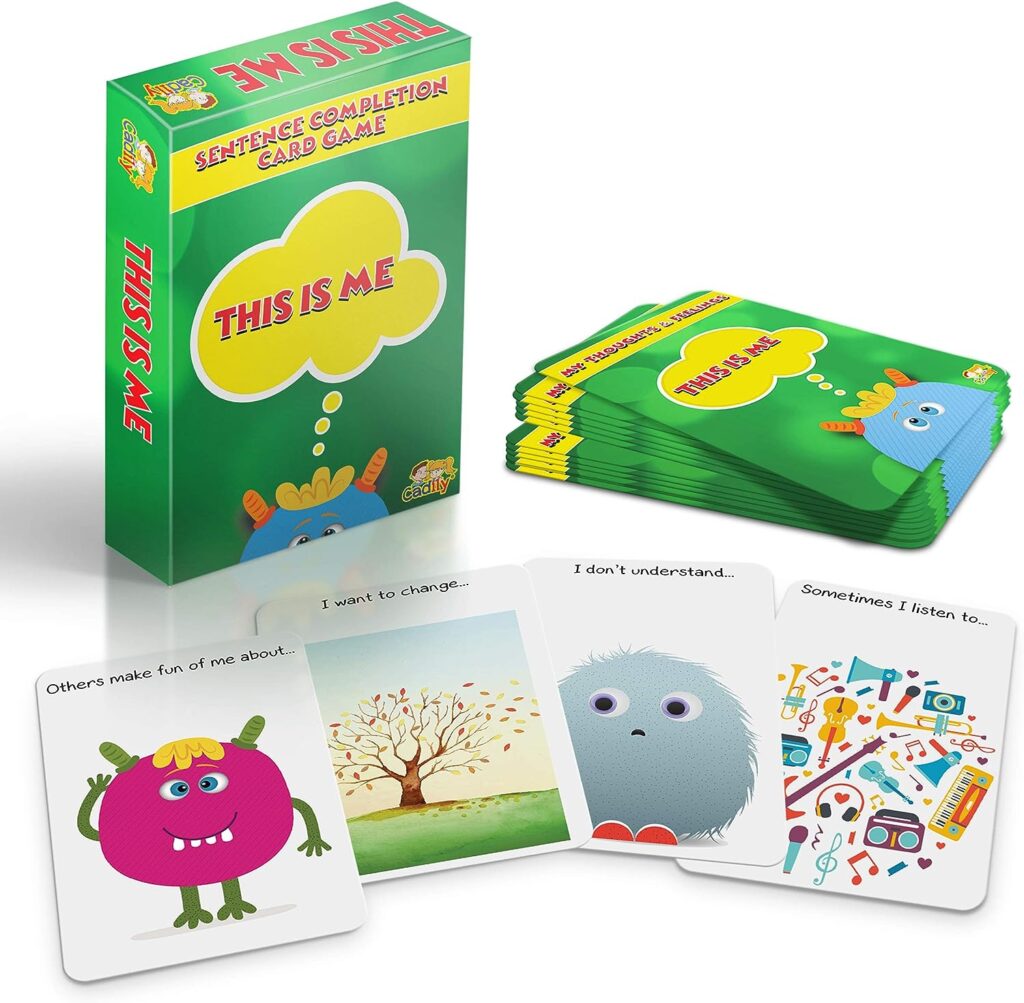
$17.97
This is Me offers 44 thought-provoking sentence completion cards, making it an invaluable tool for anyone seeking to promote meaningful conversations, especially in therapy and counseling sessions. Here’s why it’s a must-have:
- Empower Expression: This game encourages children to express their thoughts and feelings openly, fostering emotional intelligence and communication skills.
- Unpredictable Insights: You never know what responses these cards might spark. They provide a unique opportunity to explore deeper feelings and thoughts.
- Enhanced Engagement: Whether you’re a parent, teacher, or mental health professional, these cards facilitate exploration, identification, and addressing of underlying issues in a child’s life.
3. Roll With It
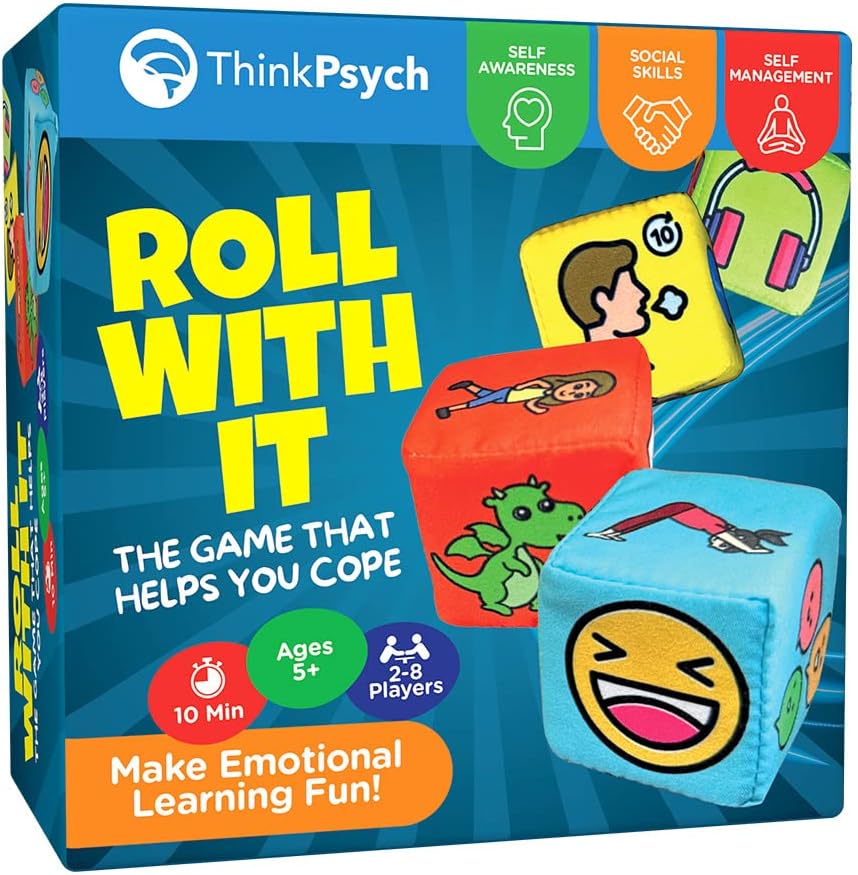
$19.99
Roll with It is not just a game; it’s a powerful tool designed by psychologists to help kids ages 5 and up deal with their BIG FEELINGS. Here’s why it’s a game-changer for parents, educators, and therapists alike:
- Coping Skills: With 24 simple and enjoyable coping skills, this game teaches children how to manage anger, anxiety, boredom, and sadness. Each of the four dice represents one emotion and teaches six coping skills. It’s a valuable addition to your calm-down corner supplies.
- Emotional Intelligence: Foster emotional intelligence in kids, a crucial trait that leads to happier, healthier, and more socially adept individuals.
- Inclusive Design: Roll with It is autism, ADHD, and anxiety-friendly, making it accessible to exceptional kids. ThinkPsych believes in the importance of neurodiversity in building a better world.
4. The Calm Ball
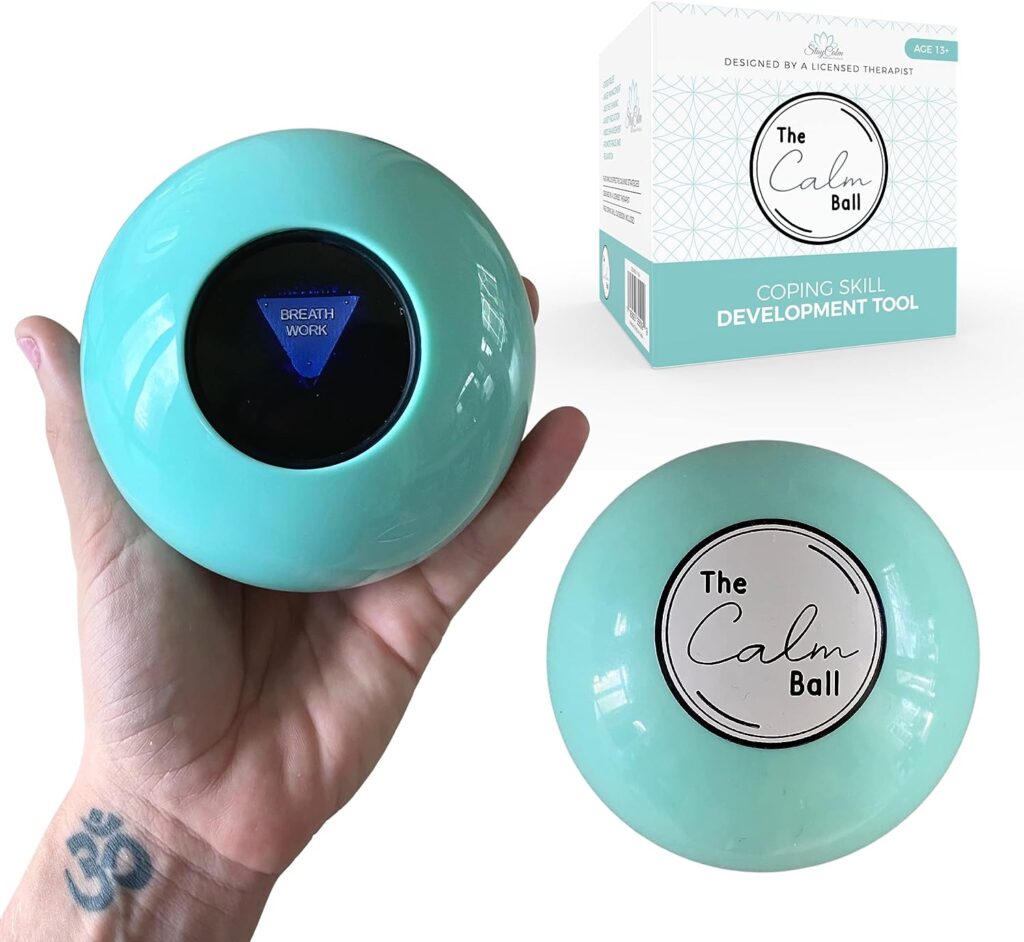
$24.95
The Calm Ball is a fresh take on stress relief, offering an innovative approach to coping skills and emotional well-being. Here’s why it’s a must-have:
- Innovative Stress Relief: It’s not your typical stress ball—randomized responses add excitement to skill development.
- Promotes Well-being: Fosters stress relief, positive thinking, and mindfulness for all ages.
- 20 Coping Mechanisms: Shake it to reveal one of 20 coping strategies with explanations and examples in the guidebook.
- Versatile Usage: Suitable for kids, teens, adults, parents, teachers, counselors, and therapists.
5. The Mad Dragon
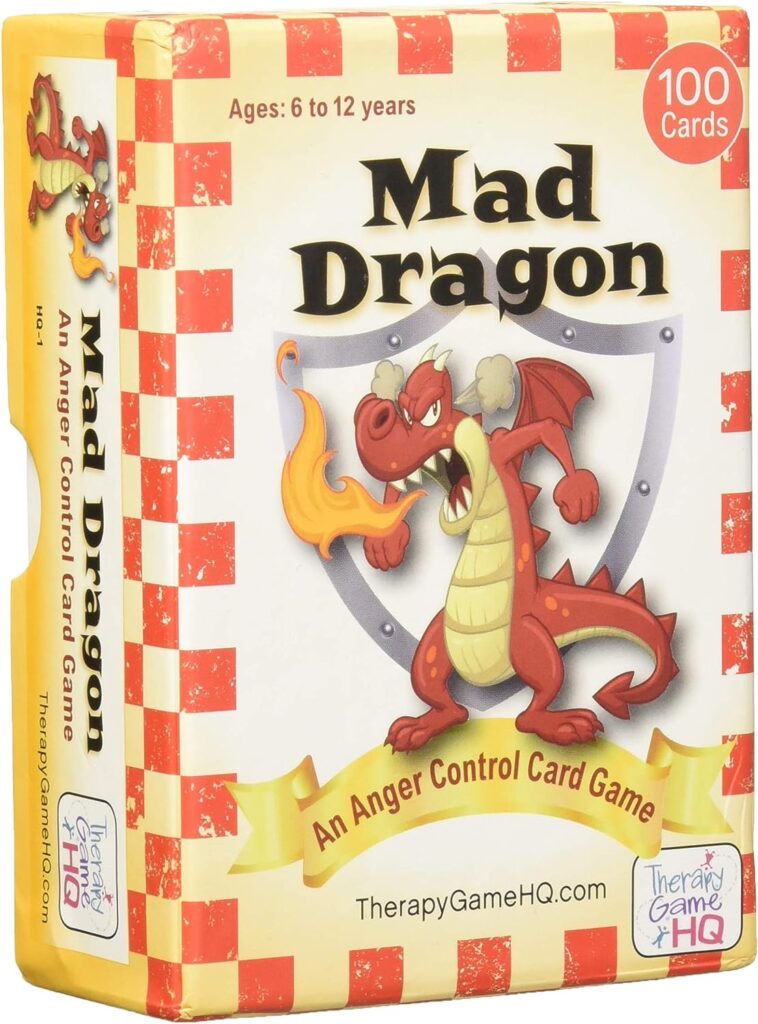
$24.27
Mad Dragon is an engaging and fast-paced therapeutic card game designed for children aged 6 to 12. It’s a valuable tool that not only provides hours of fun but also teaches crucial anger control and management skills. Here’s why every parent, teacher, and counselor should consider adding this game to their collection:
- Anger Control: This game is more than just entertainment; it’s a therapeutic tool that helps children learn to control their anger in the moment.
- Effective Techniques: Mad Dragon offers a playful way for kids to practice 12 effective anger management techniques, giving them practical tools to handle their emotions.
- Understanding Anger: Through gameplay, children can better understand what anger feels and looks like, helping them become more aware of their emotions.
- Conflict Avoidance: The game teaches strategies to avoid anger-provoking situations, promoting conflict resolution and prevention.
Closing Thoughts
As we conclude this journey into the world of engaging and therapeutic games for children, let’s remember the key takeaway: Investing in the emotional well-being and development of our kids is just as important as nurturing their academic skills. These remarkable games not only make learning fun but also empower children with essential life skills—empathy, self-regulation, anger management, and more.
If you’re eager to explore more resources and tools that support the social and emotional growth of your child or students, look no further than our website. We have a treasure trove of valuable content and products designed to make the learning experience both enjoyable and enriching. Whether you’re a parent, teacher, or counselor, our website is your one-stop destination for fostering emotional intelligence in the young minds you care about. Don’t miss out—continue your exploration now!
